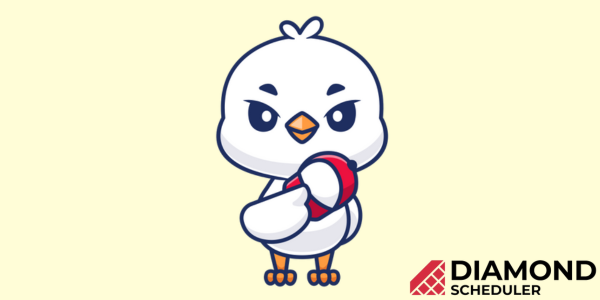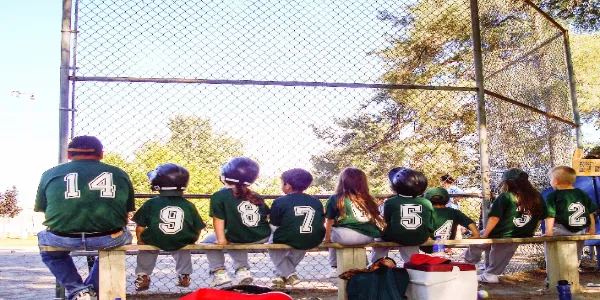
Little League Pledge: History, Controversy, Other Versions
Baseball has been an American pastime for nearly 150 years.
Since 1939, millions of boys—with the inclusion of girls in 1974—across the United States and the world have participated in Little League Baseball.
15 years after the creation of Little League Baseball, the Little League Pledge was written and proudly recited by young baseball players.
The original Little League Pledge promotes patriotism, faith, and good sportsmanship to encourage children to play fair as they learn to play sports, enjoy the game, and value other players.
What is the Little League Pledge?
The original Little League Pledge is as follows:
"I trust in God. I love my country and will respect its laws. I will play fair and strive to win but win or lose, I will always do my best."
The Little League Pledge is often recited by local leagues at the beginning of every game, though some Little League programs choose to say the pledge only at the start of the season.
Below is a video of the Little League Pledge in action:
Read More: Little League World Series Age Limit. Here's what you need to know about LLWS restrictions!
Who wrote the Little League Pledge? History of the pledge
In 1954, the first president of Little League Baseball, Peter J. McGovern, wrote the Little League Pledge as a way to be inclusive to Little League Baseball players worldwide.
Prior to the creation of the Little League Pledge, local Little League programs were reciting the United States Pledge of Allegiance.
At the time that it was written, the Little League Pledge was a way to positively support and unite Little League players the world over while still alluding to the shared patriotic and religious convictions of the general public in the United States.
A pledge beloved by the president
Since its inception, United States presidents have been proponents of Little League Baseball, with President Eisenhower being one of the staunchest supporters.
On February 22, 1955, the Little League Pledge was sent to President Dwight D. Eisenhower after it was printed in Little League magazine.
After receiving the pledge, President Eisenhower penned a letter to Peter McGovern stating:
“Thank you for … sending me the inspiring and fine pledge that, I understand, will now be repeated at the start of the Little League games. I am always glad to hear the plans and activities of Little League.”
In 1959, the president declared the week beginning the second Monday in June as National Little League Baseball Week, in which Americans were encouraged to explore the benefits of competitive sports and participate in baseball and other activities to promote youth fitness.
The original footage below shows President Eisenhower congratulating the World Champion Little League Baseball Team at the White House:
Read More: Little League Bat Rules. If your child is new to the Little League, this guide is a great place to start!
What is the Little League Pledge controversy?
For decades, the Little League Pledge has remained unchanged, but in recent years, controversy has surrounded the Little League Pledge over the phrasing "trust in God" and "love my country."
When league board members began noticing that players from homes without a belief in God or patriotism were reluctant to recite the pledge and that their upset parents were considering its legality, some opted to change the pledge to omit God and country.
The secular versions of the Little League Pledge are as follows:
“I love my country and will respect its laws. I will play fair and strive to win but win or lose, I will always do my best"
"I will play fair and strive to win but win or lose, I will always do my best."
This again sparked controversy among parents who held a belief in God, country, and the historical value of Little League's pledge who felt that changing the pledge negatively impacted the league and the players who held traditional values.
Despite the controversy, reciting the Little League Pledge has never been mandatory and is left to the discretion of a local league's board of directors to decide if the pledge should be said before games or the season.
What are alternatives to the Little League Pledge?
While the Little League Pledge is still recited before Little League games, there are some alternatives that local leagues can use instead.
Many local leagues opt to recite the Pledge of Allegiance or sing the National Anthem before games.
Other substitutes for the Little League Pledge include a volunteer pledge or a generalized Little League-approved message on good sportsmanship and expectations for players, parents, coaches, and other members.
What is the Little League Parent and Volunteer Pledge?

Little League International not only encourages good character among its players but also for the parents and volunteers involved.
The Little League Parent and Volunteer Pledge can be recited by parents and volunteers before the season or games.
The Little League Parent and Volunteer Pledge is as follows:
"I will teach all children to play fair and do their best. I will positively support all managers, coaches, and players. I will respect the decisions of the umpires. I will praise a good effort despite the outcome of the game."
What is the message of good sportsmanship?
In lieu of the Little League Pledge, National Anthem, or Pledge of Allegiance, an all-encompassing message of commendable behavior and a love for baseball can be recited before the season or before each game.
The message of good sportsmanship by Little League International is as follows:
“Little League International and all of its local leagues promote and expect good sportsmanship by its players, coaches, volunteers, and spectators. We request your cooperation by supporting the participants and officials in a positive manner. Profanity, racial or ethnic comments, or other intimidating actions taken by spectators, players, coaches, or volunteers that are deemed inappropriate by the Little League International Tournament Committee will not be tolerated and may jeopardize the eligibility of the participating teams within this District tournament.”
Read More: Little League World Series Winners. Here's a list of the LLWS winners through the decades and when the next Little League World Series will take place!
Frequently asked questions
Is the Little League Pledge illegal?
No. The Little League Pledge is not illegal as the organization does not require players, parents, coaches, or other members to recite the pledge against their own convictions.
Does Little League International discriminate based on religion?
No. Little League International does not discriminate based on religion or lack thereof. Whether or not the unaltered Little League Pledge is recited is up to the individual programs.
A Little League Board of Directors is allowed to alter schedules to accommodate religious holidays if they choose, though particular observances of holidays are not required by Little League International.
To conclude
The Little League Pledge is a pledge reflecting positive attitudes, and a love for God, country, and the game of baseball. While it is not required to be recited by each person involved in Little League programs, it remains a long-standing tradition in many local leagues.
Hannah DeMoss has been a professional freelance content writer for nearly a decade. During that time, she has authored hundreds of ghostwritten and published books and articles for clients worldwide. The wife of a professional lacrosse player, Hannah’s free time is often spent as a bleacher-bound cheerleader at practices and games.



